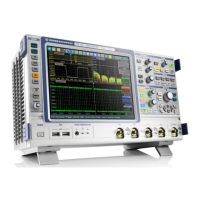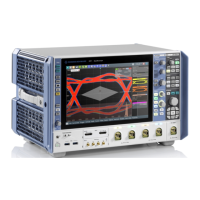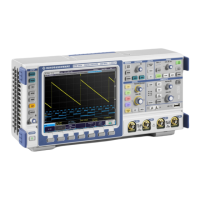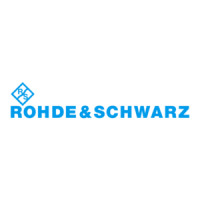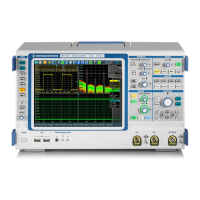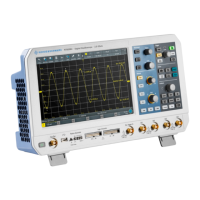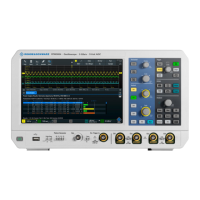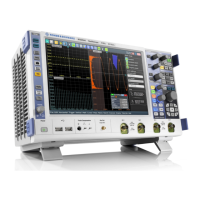Jitter analysis and clock data recovery
R&S
®
RTP
1042User Manual 1337.9952.02 ─ 12
Measurement Abbrevia-
tion
Description Resu
lts
Diagram
S
t
d
D
e
v
a
p
/a
b
s
H
is
t
o
g
r
a
m
T
r
a
c
k
S
p
e
ct
r
u
m
Other bounded
uncorrelated
Dual-Dirac jit-
ter
(1)
(O)BUJ (δ -δ) Other bounded uncorrelated Dual-Dirac jitter (O)BUJ
(δ- δ) is an industry standard approximation to the
other bounded uncorrelated jitter measurement. It is
calculated by fitting a model of two overlapping,
equally large Gaussian distributions to the observed
RJ+(O)BUJ histogram. The calculated value is the
amplitude difference between the two distributions
center points.
x
Random jitter
(1)
RJ Consists of any influence that cannot be predicted
with model parameters. Usually, this jitter component
follows a Gaussian probability distribution. The algo-
rithm computes the standard deviation and the peak-
peak value of the TIE caused by RJ within the ana-
lyzed waveform.
x
x
(1)
Available, if (Other) bounded uncorrelated > "Enabled".
(2)
Available, if Periodic > "Enabled".
(3)
No results available, if "Transitions" is set to "Rising"/"Falling".
To display the measurement results, "Enable" the advanced jitter analysis in the
"Results" tab.
Remote command:
ADVJitter<m>:DCOMposition:COMPonents<n>:ENABle on page 2271
Select all /Clear
Selects/clears all components in the jitter dialog.
Remote command:
ADVJitter<m>:DCOMposition:CLEJitcomp on page 2275
ADVJitter<m>:DCOMposition:SELJitcomp on page 2275
Transitions
Selects which transitions are considered for the display of the diagrams, rising, falling
or both. This setting is mostly relevant for histograms, tracks and the measurement
results.
Remote command:
ADVJitter<m>:RESult:TRANsitions on page 2276
18.2.5.4 Noise measurement settings
Available for option R&S RTP- K134.
Advanced jitter and noise (option R&S
RTP- K133/K134)
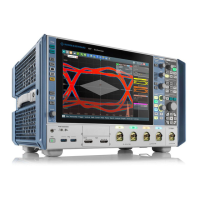
